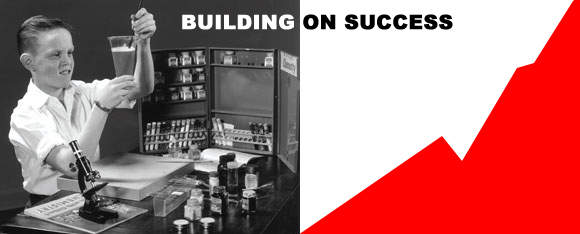Recently I read the book Steve Jobs by Walter Isaacson. As I was reading I found myself taking notes, jotting down some of the thoughts, quotes and actions that really struck me as interesting. Other than his enormous ego and insensitivity, one of the things that stood out to me was how Steve Jobs really engaged with many so many different elements and levels of business and life and didn’t spend much time separating the two. For Steve design, ethics, self, peace, success and spirituality really needed to be understood together to be understood at all.
 There are few people who have ever achieved the dramatic successes Steve Jobs did. It’s probably a good idea then, if you are building a company, to studying some of the insights Steve understood naturally. Some of these were his own thoughts, others he garnered from his mentors.
There are few people who have ever achieved the dramatic successes Steve Jobs did. It’s probably a good idea then, if you are building a company, to studying some of the insights Steve understood naturally. Some of these were his own thoughts, others he garnered from his mentors.
Want to build a great company? Focus on the basics and do them really well. Great products, great marketing, great distribution.
Steve’s dream was to build a lasting company. Something he learned from Hewlett Packard was that lasting companies know how to reinvent themselves. To remain successful a company must be flexible and creative, not afraid of change.
When coming back to Apple he had a massive task ahead of him. Rebuild a failing behemoth. The chance of success was extremely narrow. Looking at all the products the different teams were building he saw their problem. There was no focus. He simplified the product line.
The way a company is organized is important. Both in structure and in the physical layout. At Pixar he created one large space with all the offices joining onto it. The space helped create community and collaboration. People from different departments who would otherwise never meet, bumped into another in the shared space. As Steve Jobs said, “The best innovation is sometimes the company, the way you organize a company”
Steve understood that for an innovative company to succeed it had to communicate, connect, with customers. The iPod was successful because it could communicate an understandable message, “A thousand songs in your pocket.” Steve spent hours labouring over the message behind the product. Steve argued, “You can’t win on innovation unless you have a way to communicate to customers.”
Steve also understood that great design was essential for great marketing. From his early mentor Mike Markkula Jobs was taught that “people do judge a book by its cover. ” Apple created the packaging of their products to signal that there was a beautiful gem inside. By creating a ritual of unpacking the product feels special.
But for Steve Jobs, good design didn’t end with the packaging. Right from his earliest days with Apple he was incessant about the design of their products. Even the way the circuit boards were designed. They were building excellent products that were well crafted from the inside out. The engineering and design needed to be excellent. This contributed to Apple’s culture of excellence.
There was another reason that Steve laboured over product design as well. He understood something the majority of technology companies miss. Human nature. As Jony Ive said, “Why do we assume that simple is good? Because with physical products we have to feel we can dominate them. As you bring order to complexity, you find a way to make the product defer to you.” As we simplify objects, especially technology, they become less intimidating to users and perceived to be more accessible, more conquerable.
Steve understood the basic principle that for his company to create the best, to be the best, it must be filled with the best. He was passionate about only hiring the best and brightest, “A players”. He believed that the best and brightest get annoyed working with anything less, so they in turn hire the best and the brightest. There is a natural quality control that takes place. However, B and C players have a feeling of inadequacy and therefore hire C and D employees to ensure that they look better. So Steve filled Apple with A players and frequently challenged his employees to ensure they remained A players.
Finally, Steve understood that for a company to be successful, its leaders must see the big picture, but be passionate about the details and products. He accounted this as his failure when hiring, John Sculley, as Apple’s CEO. John got the big picture but didn’t care much about the products the company was creating. However, Steve Jobs praised members of his team that did. “He get’s the big picture as well as the most infintesimal details about each product. And he understands that Apple is a product company.” Steve Jobs said about Jony Ive.
Steve was a brilliant man, and we will miss him. But fortunately because of books like Steve Jobs, by walter Isaacson, many of his thoughts live on.
If you are interested, an article I wrote about Steve Jobs’ view of Passion and Business is here. It continues to be the most read article on this blog.
Also, here are some great Steve Jobs quotes.
 This weekend I became the owner of this 1982 Bianchi. As soon as I saw it I knew it needed the right home. I have not determined the exact model yet. However, I have a suspicion that it might have been either a custom build, do to the fact that it’s forks are chrome, or a Bianchi Sport SS. From all my research it appears that stock Bianchi forks would have probably been the same color of the bike.
This weekend I became the owner of this 1982 Bianchi. As soon as I saw it I knew it needed the right home. I have not determined the exact model yet. However, I have a suspicion that it might have been either a custom build, do to the fact that it’s forks are chrome, or a Bianchi Sport SS. From all my research it appears that stock Bianchi forks would have probably been the same color of the bike.












 A few days ago I wrote an article about what
A few days ago I wrote an article about what Facebook IPO officially went live a few minutes ago. Astonishingly, when businesses around the world are struggling to find financing, Facebook continues to soar, and people everywhere are talking about it. You can’t buy the kind of media attention and PR Facebook gets.
Facebook IPO officially went live a few minutes ago. Astonishingly, when businesses around the world are struggling to find financing, Facebook continues to soar, and people everywhere are talking about it. You can’t buy the kind of media attention and PR Facebook gets.



 There are few people who have ever achieved the dramatic successes Steve Jobs did. It’s probably a good idea then, if you are building a company, to studying some of the insights Steve understood naturally. Some of these were his own thoughts, others he garnered from his mentors.
There are few people who have ever achieved the dramatic successes Steve Jobs did. It’s probably a good idea then, if you are building a company, to studying some of the insights Steve understood naturally. Some of these were his own thoughts, others he garnered from his mentors.